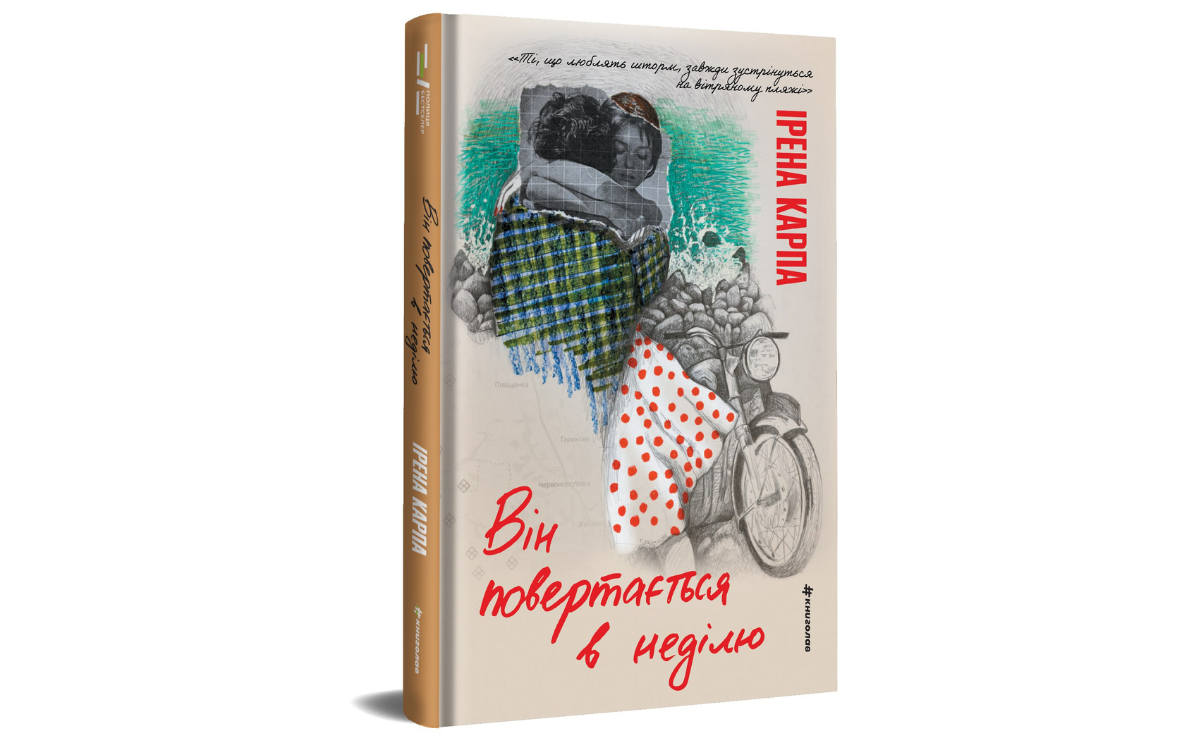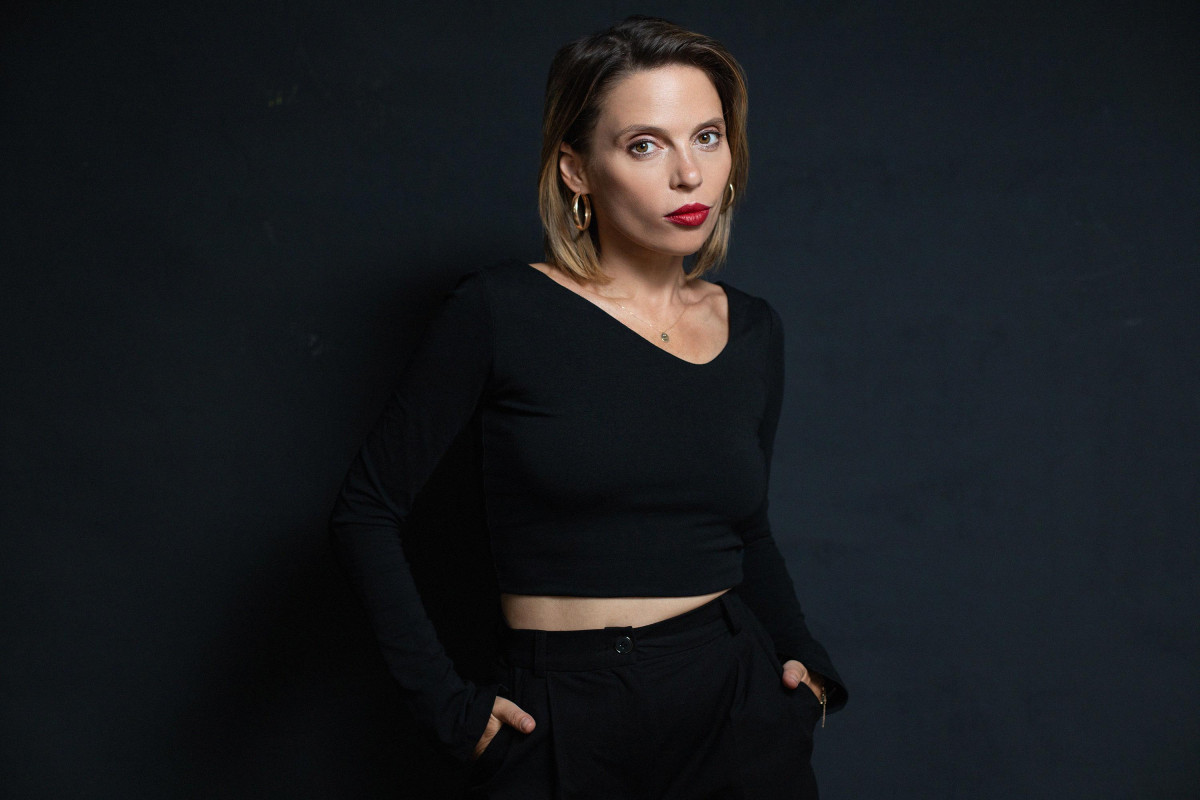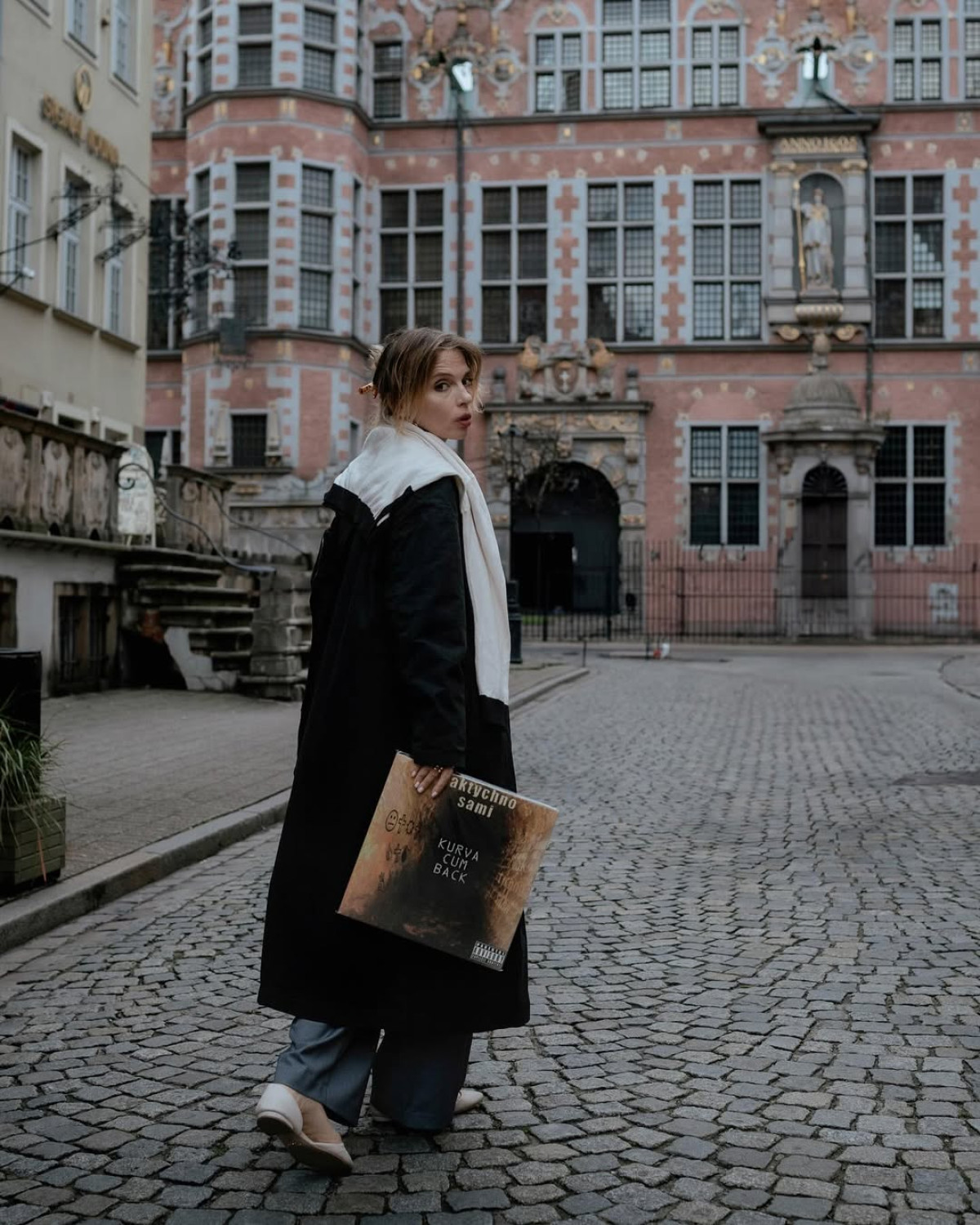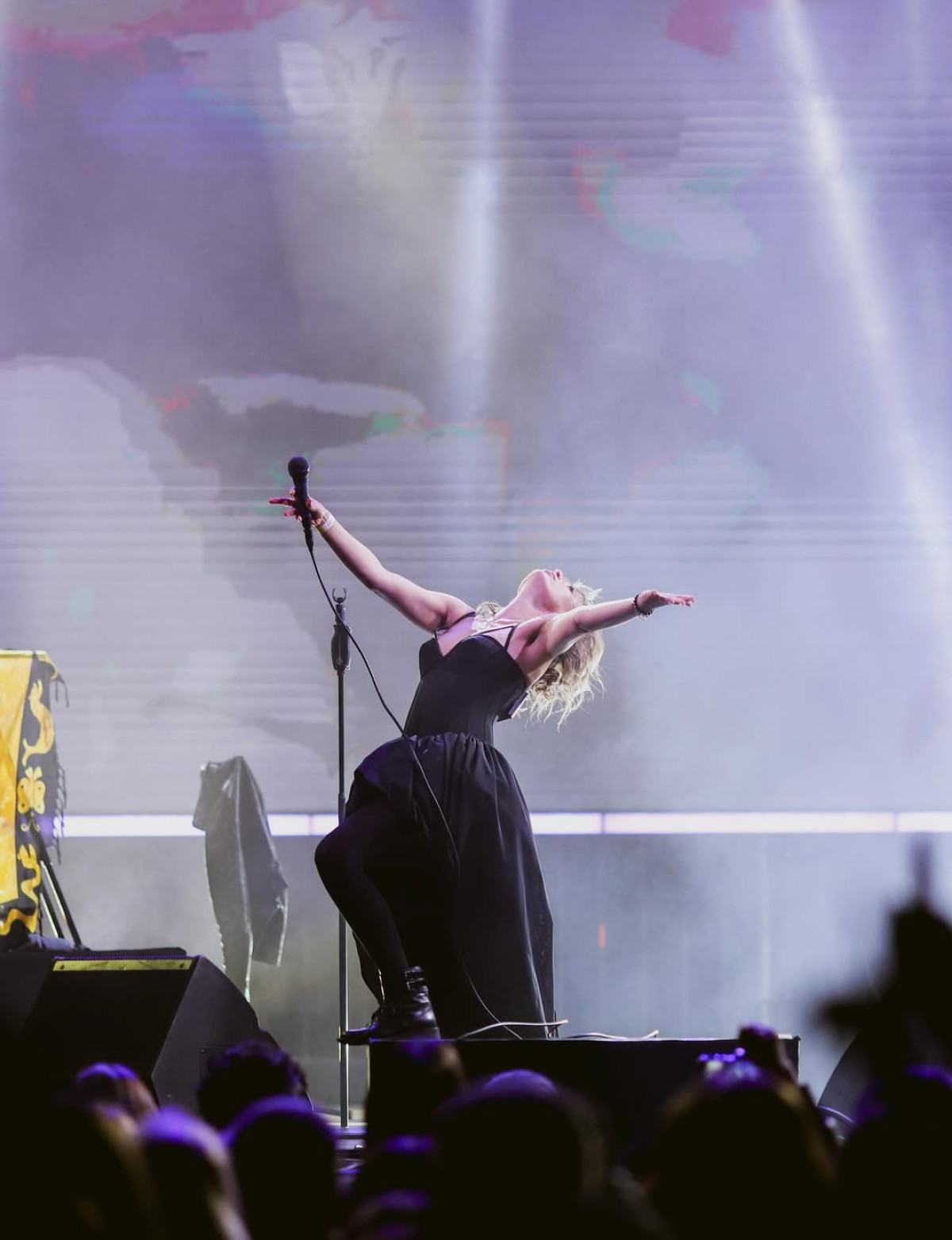Exclusively for ELLE
The #booklover publishing house is publishing a new novel by Irena Karpa, “He Returns on Sunday,” which takes place during the full-scale Russian-Ukrainian war.
The book collects the stories of architect Vera in Paris, soldier Atreus in a war zone, and schoolgirl Mathilde in Burgundy — it tells the story of the lives of the main characters after the events of February 2022.
The characters in the book have different experiences of invasion: they learn about the Russian offensive abroad, abandon a peaceful life to defend the country, are forced to leave their home for safety, or see the shadow of war in someone else.
In an interview with ELLE, Irena Karpa talks more about her new novel. This conversation is about love during war, finding yourself amidst chaos, and the importance of writing about the fate of Ukrainians in the face of a full-scale invasion.

In your new book, the main locations are wartime Ukraine and France. When describing these spaces, did you rely more on your own experience or did you draw on your imagination?
With locations in fiction books, as a rule, it is easiest. If we describe modern, not historical time, we don’t even have to sit in the archive. Of course, all this is copied from my own life: a bakery with the smell of fresh bread, Parisian rooftops, Kyiv with its bustling life, wartime Kharkiv. The novel included quite real, iconic locations. I am also a reporter, so it is important for me to convey the spirit of the time and place in this particular historical period.
As for Normandy, which is very much in the book in the final scenes, it is my place of strength. I really wanted to share it in all its details, sometimes I got too carried away, describing the rocks, the ocean waves, the deserted beaches after low tide. Then I had to cut it like a living thing, so as not to overdo it.
Architect Vera, soldier Atreus, and schoolgirl Matilda are three characters with very different lives. How did these characters come about? Do they have real-life prototypes?
Matilda is a completely fictional character. She actually appeared to me when I was sitting in an old library and writing something. And she had so much energy! She is actually here – a little Trickster, a girl who learns about her desires and is not going to be afraid of them. When my friend, having read the manuscript, told the plot to the grandmothers in the sanatorium (don't ask), they started banging their fists on the table: “That's Matilda! What a piece of shit!” Therefore, anticipating your question about which character I like the most – I want to say that it's Matilda.
Atreus is a very relatable character. I have close friends who have been at the front since the first days of the war or are already veterans. The story of one of them so struck me that a man left his quiet life as a businessman in the Netherlands and broke away to defend Ukraine that Atreus appeared. Sometimes it seems that these fictional characters have become very close to me during the writing of the novel.
When I said goodbye to the book, I was already looking at the world through their loving eyes. I cried and laughed with them, made plans, lived their lives.

Irena Karpa
Vera is an architect, a lifestyle that overlaps little with mine, so I had to spend many hours talking to architect friends. I even went to Denmark to study the basics of Scandinavian design, to understand the concepts a little, so as not to be an amateur. I also studied ancient Ukrainian architecture together with my Parisian architect friend of Ukrainian origin.
When I was working on the topic of post-traumatic stress disorder in the military, which is what awaits us after the war, I consulted with a psychiatrist who works with the military. I generally have a very honest attitude towards what I write (at least this way I won't get a gate for something I just sucked out of my finger. Although, of course, a gate will come for something, I'm ready for that too). The main thing I know for myself is that this book is honest.
I understand Vera very well as a woman and a mother. I have children, and she has a teenage daughter. Relationships with children are not always easy, relationships in long-term marriages also change, marriages have the ability to die or survive. It is important to me that the woman at the end of my story becomes stronger and happier.
Overcoming crises, we grow. That's why this book, the story, the storylines of each of the characters — they are about a dream that seems unattainable at first. And then yours finds you anyway…
The main plot of the book begins with the Russian invasion. Was it difficult for you to describe the realities that we live in every day? Did you describe your own experience of the beginning of a full-scale invasion?
Of course, describing the realities of the beginning of the war is a difficult task. We have all lived this experience, but each in a different way. My experience, like Vera's, is the experience of a Ukrainian woman who feels powerless abroad, when everything is burning and falling apart at home. I did not want to add the scene of the beginning of the war, where the heroine finds out about everything by phone. And then the man who became the prototype of Atreus, rereading one of the first drafts, began to insist on it. This is an important historical moment — perhaps the most difficult moment of my conscious life, and as a result, I gave it to the heroine, very briefly, but very briefly.
However, what is important is not the description of the events themselves, but how we change in these events: what happens to our relationships, whether they can withstand such pressure. Many couples, where one is a foreigner and the other is Ukrainian, simply could not stand it and broke up. People began to feel alienated, realized how different they were.
Something similar happened to those who left Ukraine, the internally displaced persons. The book contains the story of Anka, a young woman who flees the war with her daughter, leaving her husband in Kyiv. There is a separate drama and its own story of female strength. IDPs are sometimes a trigger topic, but through this story, written from a specific person who lived in our house for eight months at the beginning of the war, I hope to destigmatize women in the eyes of society.
View this post on Instagram
Post shared by #knygolove Publishing House (@knygolove)
There are smells in the text—sea, wormwood, rosemary. Do you think such details immerse the reader in the atmosphere of that place and time?
Smells, along with sounds, tactile sensations and tastes, are the best way to immerse the reader in the atmosphere of history. I teach this to my students and, of course, I use it myself. What a confectionery shop window smells like, what a shore smells like after the tide goes out, what the hair of the person you love smells like, what dried flowers of the Ukrainian steppe smell like, sent in an envelope 3,000 kilometers away…
The theme of loss and love runs throughout this novel. What does love in wartime mean to you?
Love during war is harsh, it has very little time.
People come together and go apart much faster than they did in peacetime. There is no longer this luxury when you can look at each other for a very long time and think that you will live forever. In general, all relationships during war become clearer, it becomes much clearer who is your real friend and who is just wearing a mask.
Why, in your opinion, is it important to also depict the fates of those Ukrainians who are currently abroad, and not just those who remained in Ukraine?
A huge part of our fellow citizens now lives abroad. I have been in France since 2015, but I live between Kyiv and Paris.
Some will return home, some will not — this is a normal process of migration during war. Mostly women fled with children, saving what was most precious. Now they have adapted to a new language and a different society, and their children go to school abroad.
I myself watched the fate of the immigrant develop: I heard her cry at night, while simultaneously studying French grammar. And then I was the first to applaud when this woman was hired as an engineer! She was still the only woman in an all-male company!
This is a story of growth through crisis: when a person no longer has to stand in lines for a humanitarian aid worker or prove to a taxi driver that they are going on a night shift not to work as a prostitute, but to build a fulfilling life, calmly explaining: I am Ukrainian, a person with education and professional competence, which is worth its weight in gold to you. I want such women to be heard, so that the truth about them is known.

One of the main motifs in the book is the search for oneself amidst chaos. Can we assume that this unites all Ukrainians today?
In my opinion, Ukrainians cope well with chaos. Often, this chaos is completely personal: in relationships with loved ones, at work, due to a crisis of self-actualization or the search for new priorities.
War is the greatest chaos. It is uncertainty, the destruction of plans, and the need to rebuild everything at any moment.
That is why one of the lines in this book (the one with Matilda) takes place after the war. It was so important to me to show that peaceful life exists, that someday we will find ourselves there. True, it does not cancel new trials, for which we can already prepare. But what is important is that there is a future. And in this future there is life.
You are often ironic and sarcastic in your work. Was there a place for humor in this story?
There is a lot of irony in this book, a little less overt sarcasm, because when there is too much of it, it can hurt. There is absolutely no pathos, and deep themes are presented easily, artistically — so that it is accessible and hits exactly where it hurts right now. I like to describe life as it is. Humor is one of the strategies of Ukrainians in difficult circumstances. It is our superpower. I see no reason not to use it in literature. Everyone who loves my books for this will definitely not be disappointed.
Is this book therapeutic for you — a self-reflection about war?
This book is not about war. It is about love in spite of war. When day seems like night, in the midst of chaos she comes – this wild love that doesn't ask permission: it finds you and says “follow her.”
We cannot now avoid the background of war, which seeps into us through sleepless nights, news or silence of loved ones at the front, gatherings at festivals, donations. Writing a book that exists outside this context seems unnatural to me. Unless I were writing a historical novel or something completely genre-specific and entertaining — for example, “How to Get Married.” Maybe my next book will be just that. To catch my breath after a deep and emotionally difficult one.

Do you think this particular book could resonate with a French or European reader in general?
I don't know. I wrote it for my people. For those who care, and those who live now, in this time. The story itself is universal — it will be perceived anywhere as a story of great love. Maybe they will understand something else about Ukraine.







